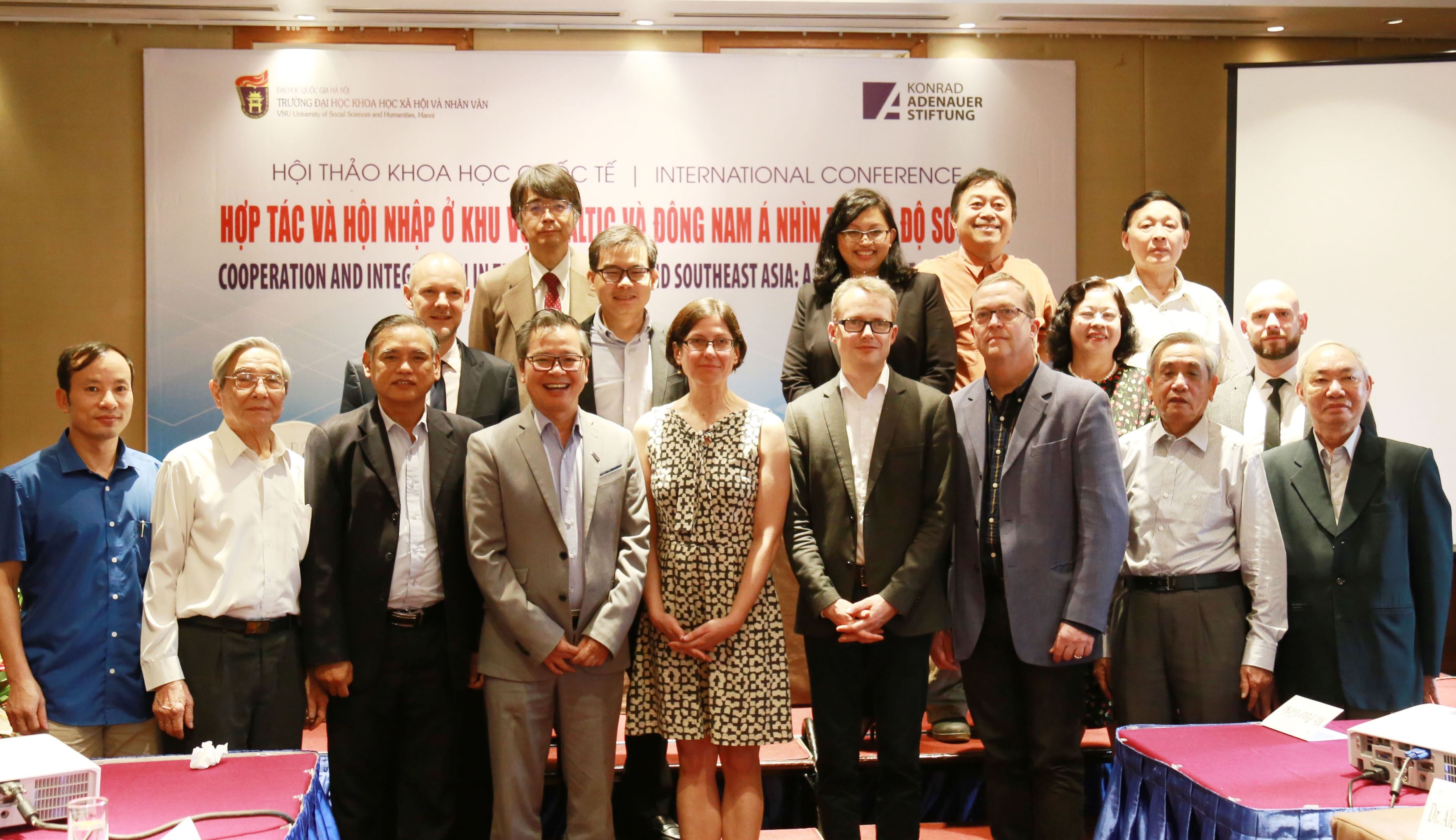
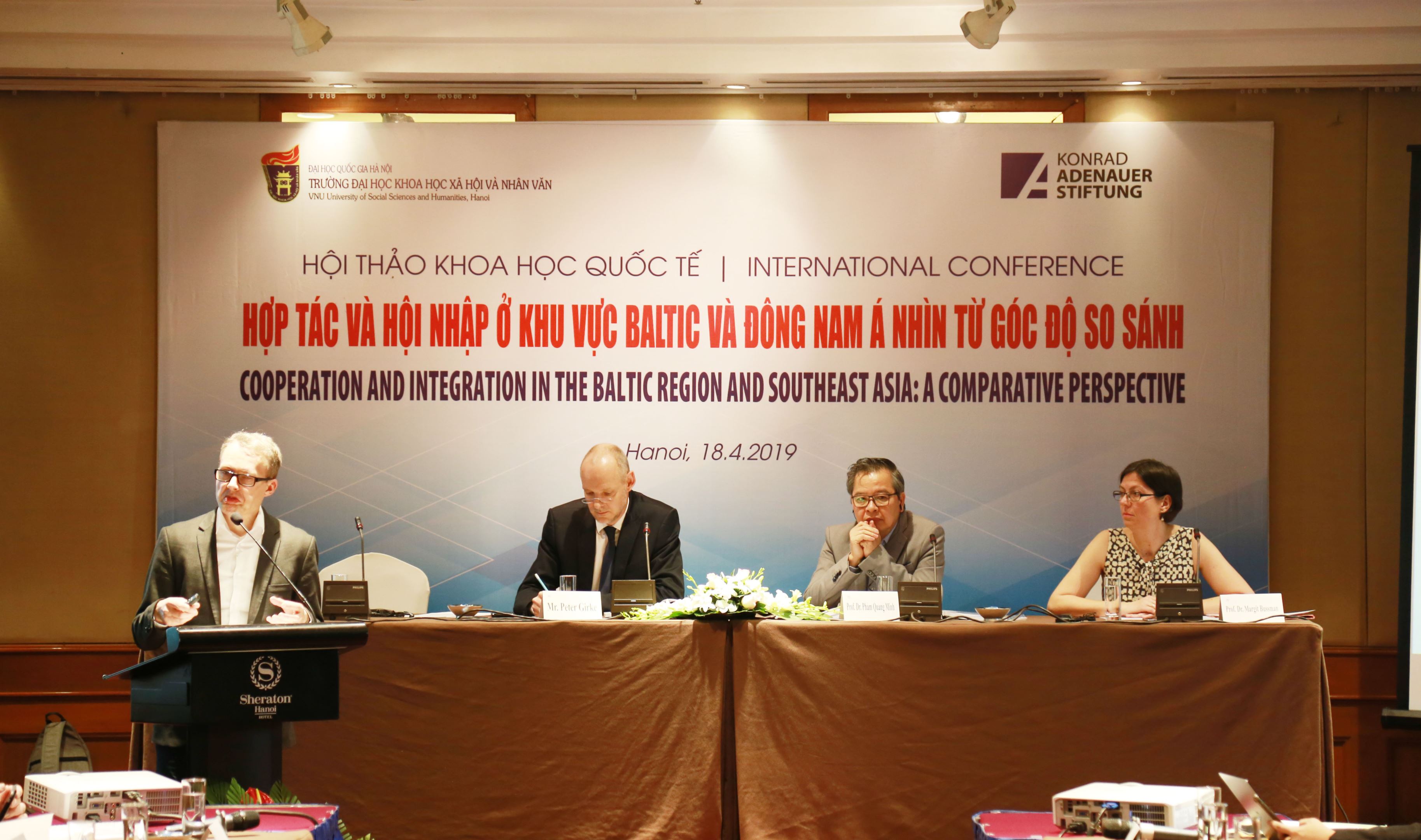
The Baltic region is a large inland sea area, surrounded by the Scandinavian Peninsula, Central Europe, Eastern Europe and the Danish Archipelago, including Sweden, Finland, Russia, Estonia, Latvia, Lithuania, Poland, Germany and Denmark. Meanwhile, Southeast Asia is an economically and politically strategic region, on the sea route of trade between East and West, located in the Southeast of Asia, including 11 countries, of which 10 are official members of the ASEAN Organization.
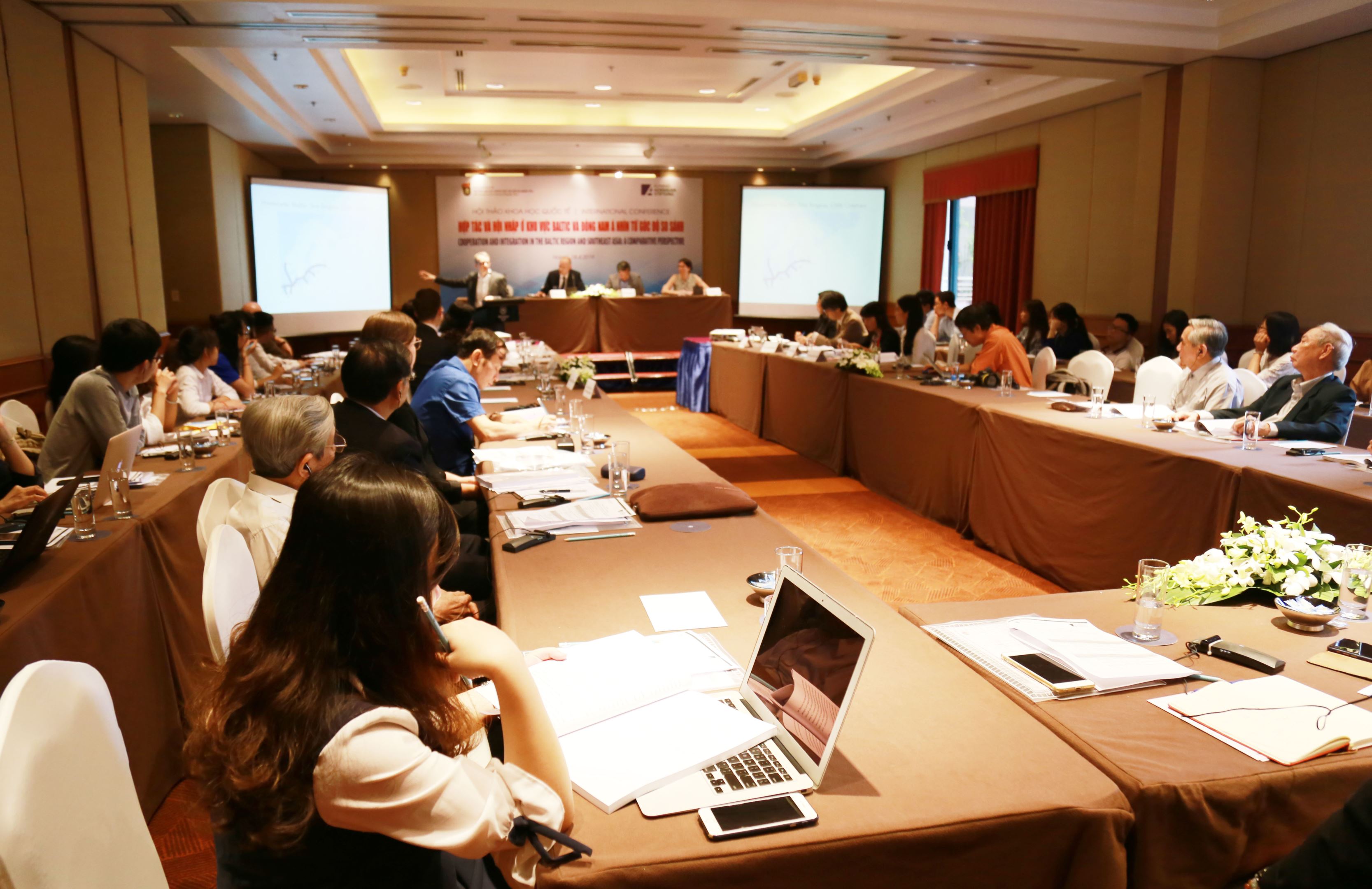
The workshop focused on analyzing the trends of cooperation and integration in the Baltic region and Southeast Asia in recent decades. Based on the comparison of similarities and differences in the two regions, scholars discussed proposals and suggestions for cooperation and integration policies of countries in the two regions. The workshop was divided into 4 sub-committees:Cooperation on traditional security issues in the Baltic region and Southeast Asia;Cooperation on non-traditional security issues in the Baltic region and Southeast Asia;Regional integration in the Baltic region and Southeast Asia;Multilateral integration and cooperation: Challenges and prospects for the Baltic region and Southeast Asia.
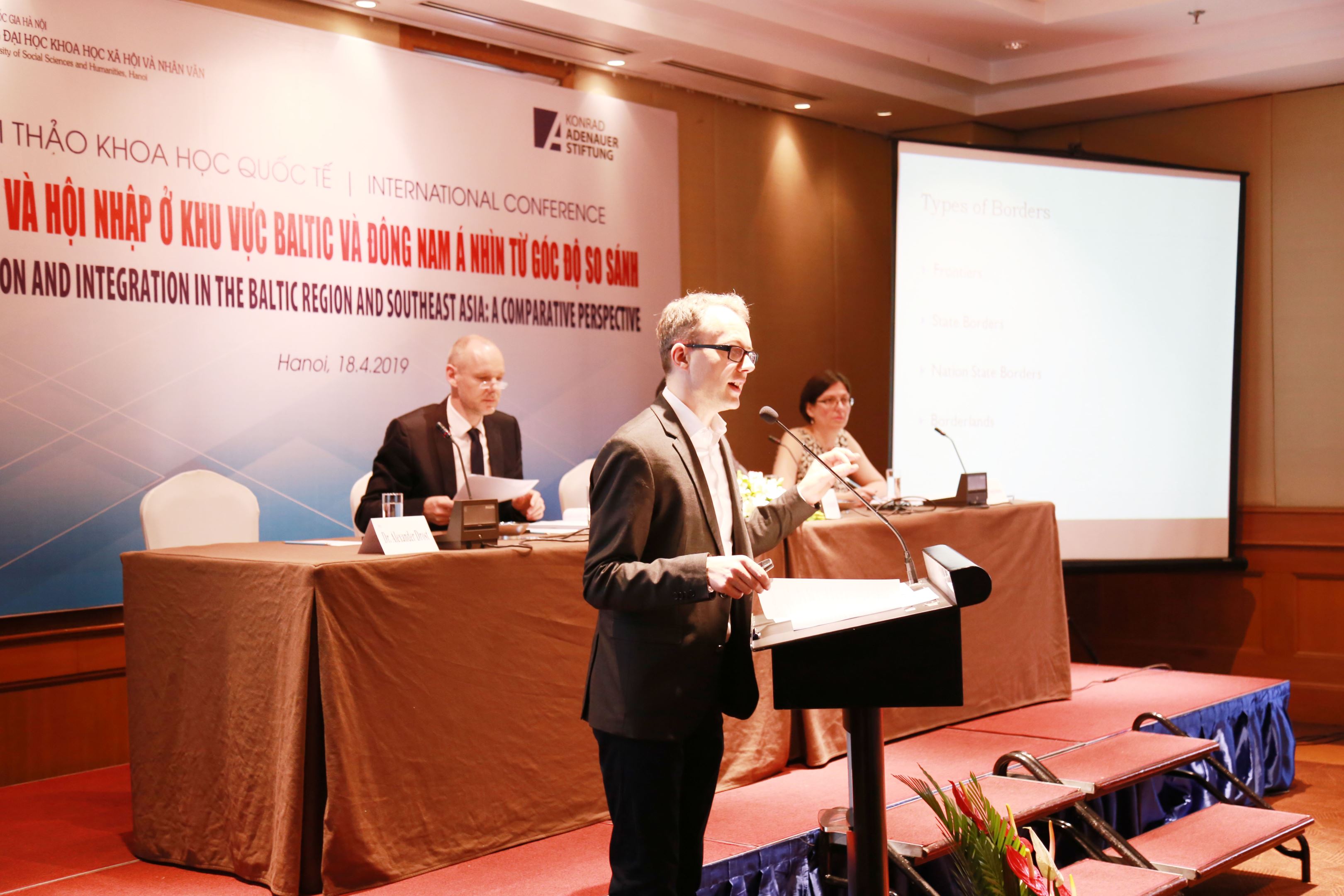
The main discussion directions include: identifying and analyzing cooperation and integration trends to deal with challenges in the development process of the Baltic region and Southeast Asia; analyzing achievements and challenges in the cooperation and integration process in the two regions; comparing similarities and differences in the cooperation and integration process in the two regions; analyzing the role of organizations and cooperation mechanisms in the two regions.
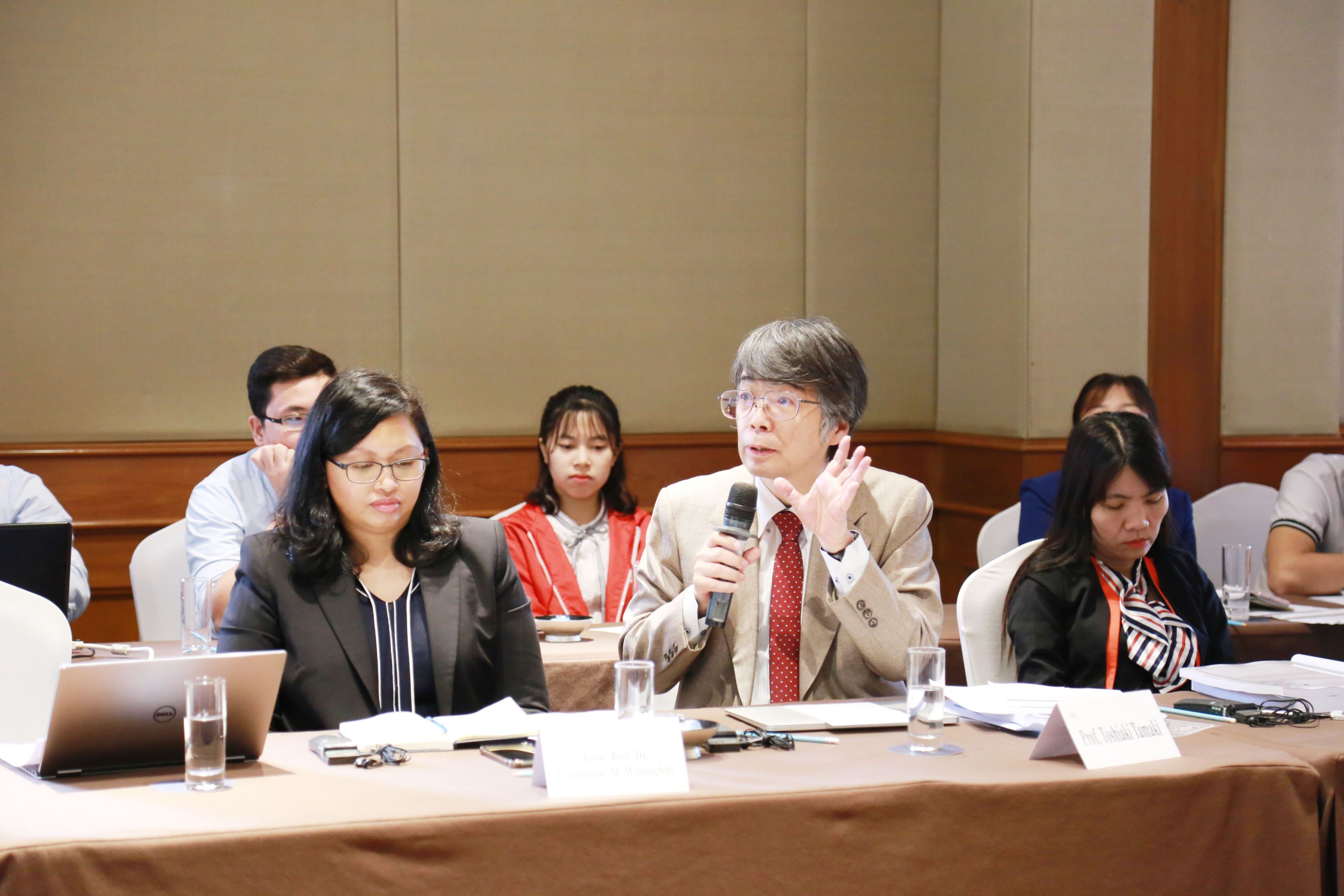
Emphasizing the comparative perspective, on the background of the trend of deep international integration, the articles analyze many "hot" issues that both regions are facing, from economic and trade development issues to military disputes, regional conflicts, non-traditional security issues, foreign policies, environmental management issues, social security... viewed from the regional perspective, national perspective and perspective from Vietnam. Due to different economic, social, geopolitical, cultural development conditions..., the two regions have different approaches and responses to each issue, leading to different effectiveness for each policy and cooperation program being implemented.
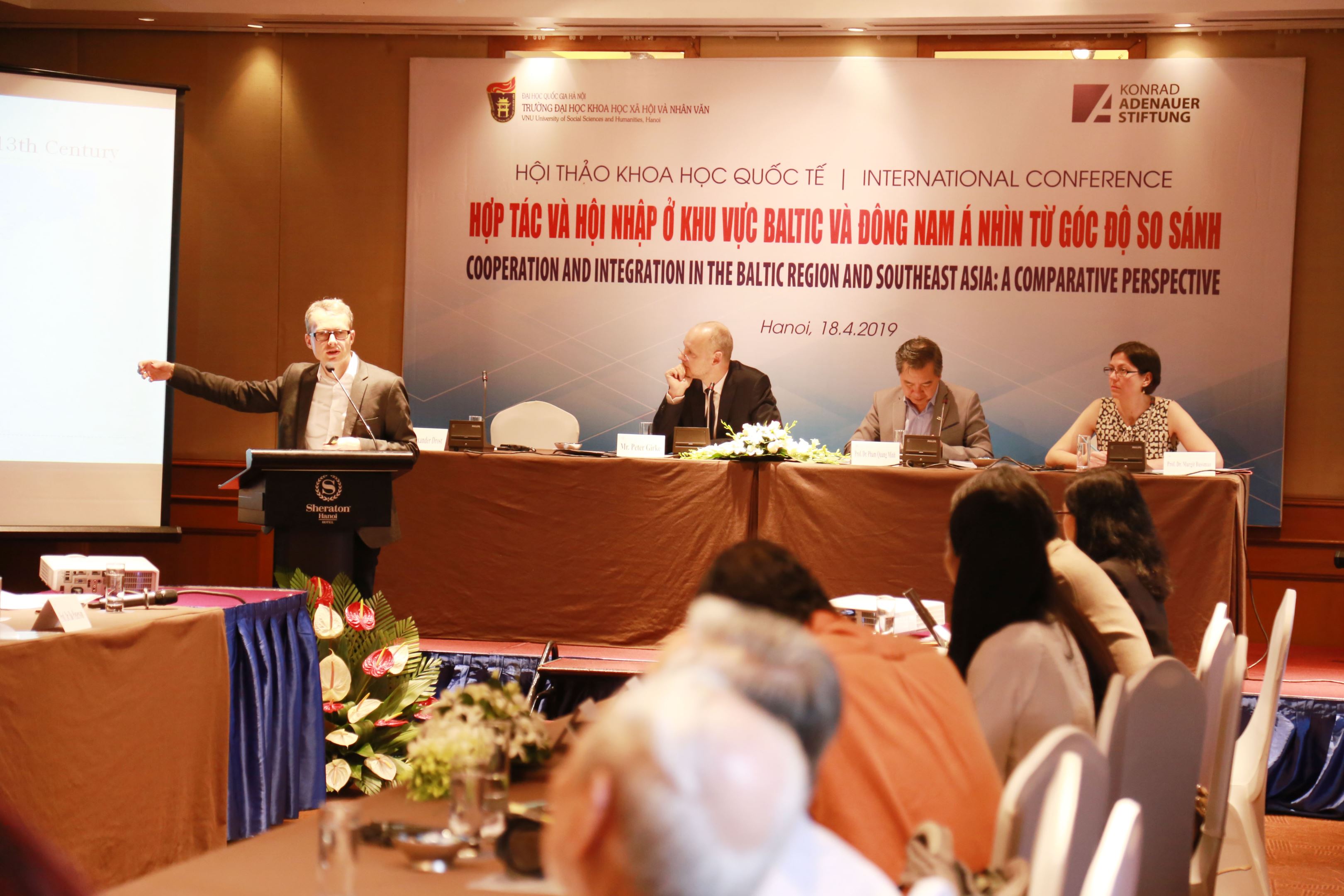
Some typical presentations: “Vietnam's perspective on the change of power and the complexity of globalization” (Prof. Pham Quang Minh, University of Social Sciences and Humanities); “Military disputes between Baltic countries” (Prof. Margit Busmann, University of Greifswald, Germany); “The coexistence of hard and soft security threats: analyzing Swedish national debates” (Prof. Bo Petersson, Malmon University, Sweden); “Swedish security in the early modern period: a commercial perspective” (Prof. Toshiaki Tamakim, Kyoto Sangyo University, Japan); “Cooperation of ASEAN countries in combating terrorism since the beginning of the 21st century” (Associate Professor Nguyen Thi Thanh Thuy, University of Social Sciences and Humanities); “Promoting regional integration in Southeast Asia: challenges and prospects” (Dr. Do Thi Thuy, Diplomatic Academy of Vietnam); “The importance of public diplomacy in regional integration: analysis of the case of ASEAN and the Baltic states” (Nguyen Ngoc Anh, Hanoi University); “Challenges for regional organizations in conflict management: the cases of ASEAN and the Baltic states” (Associate Professor Bui Hong Hanh, Dr. Nguyen Thi My Hanh, University of Social Sciences and Humanities); “The Baltic region: controversial stories and the reconstruction of a regional security complex” (Martin Kerntopf, Greifsward University, Germany); “The US Indo-Pacific strategy and Southeast Asia” (Professor Charmaine M. Willoughby, Philippines); “Disputes over regional order in the Indo-Pacific and the diplomacy of small states” (Vannarith Chheang, Asian Vision Institute, Cambodia)...
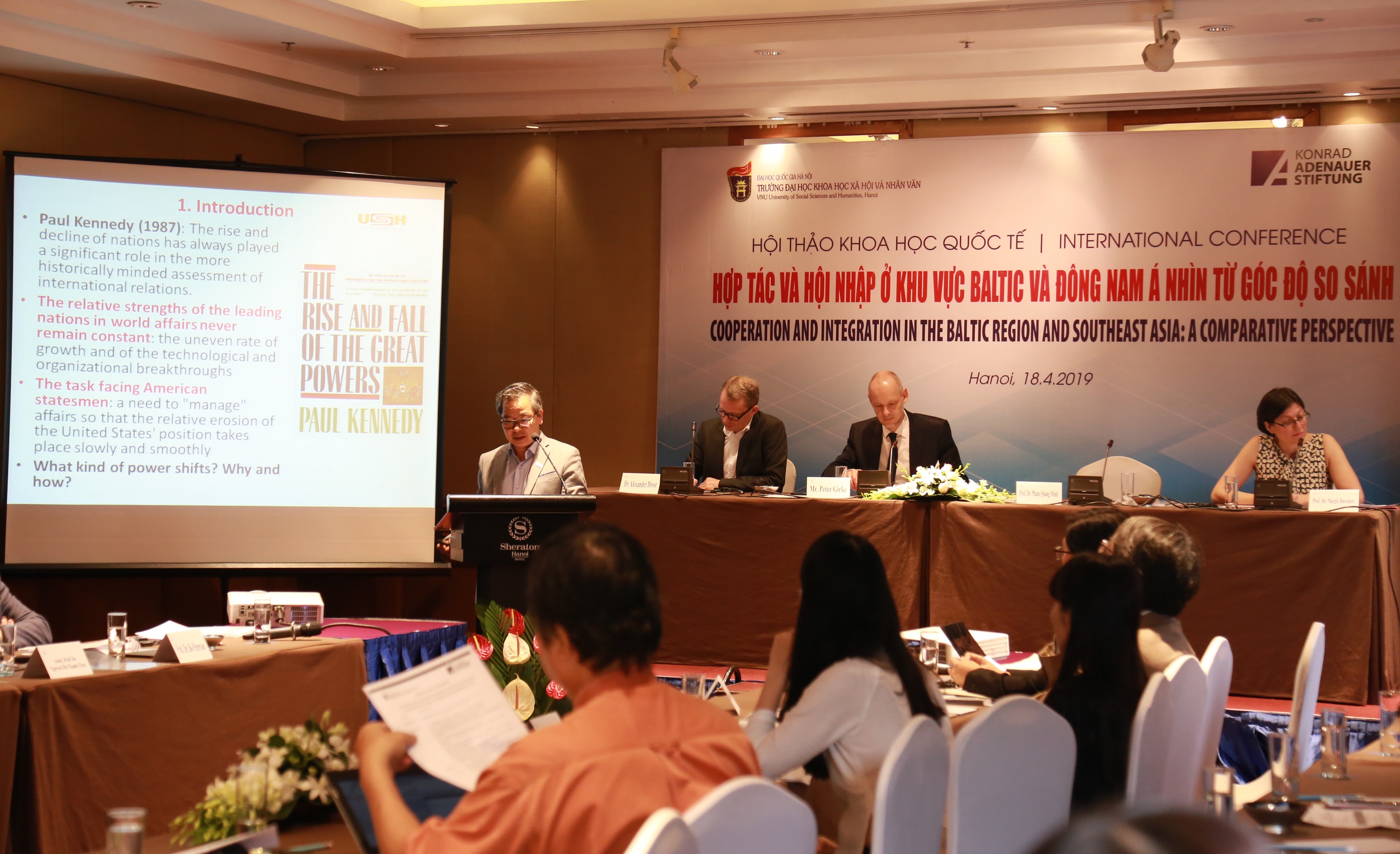
Konrad Adenauer Stiftung and the University of Social Sciences and Humanities, VNU have cooperated for more than 20 years to organize dozens of international scientific conferences on many topics in the field of international relations and regional security such as: grassroots democracy in East Asia, Mekong River water management, ASEAN and its challenges and achievements, market liberalization, compilation of History textbooks... KAS also supports the University in organizing short-term training courses to improve research and teaching capacity in the field of international relations for lecturers.
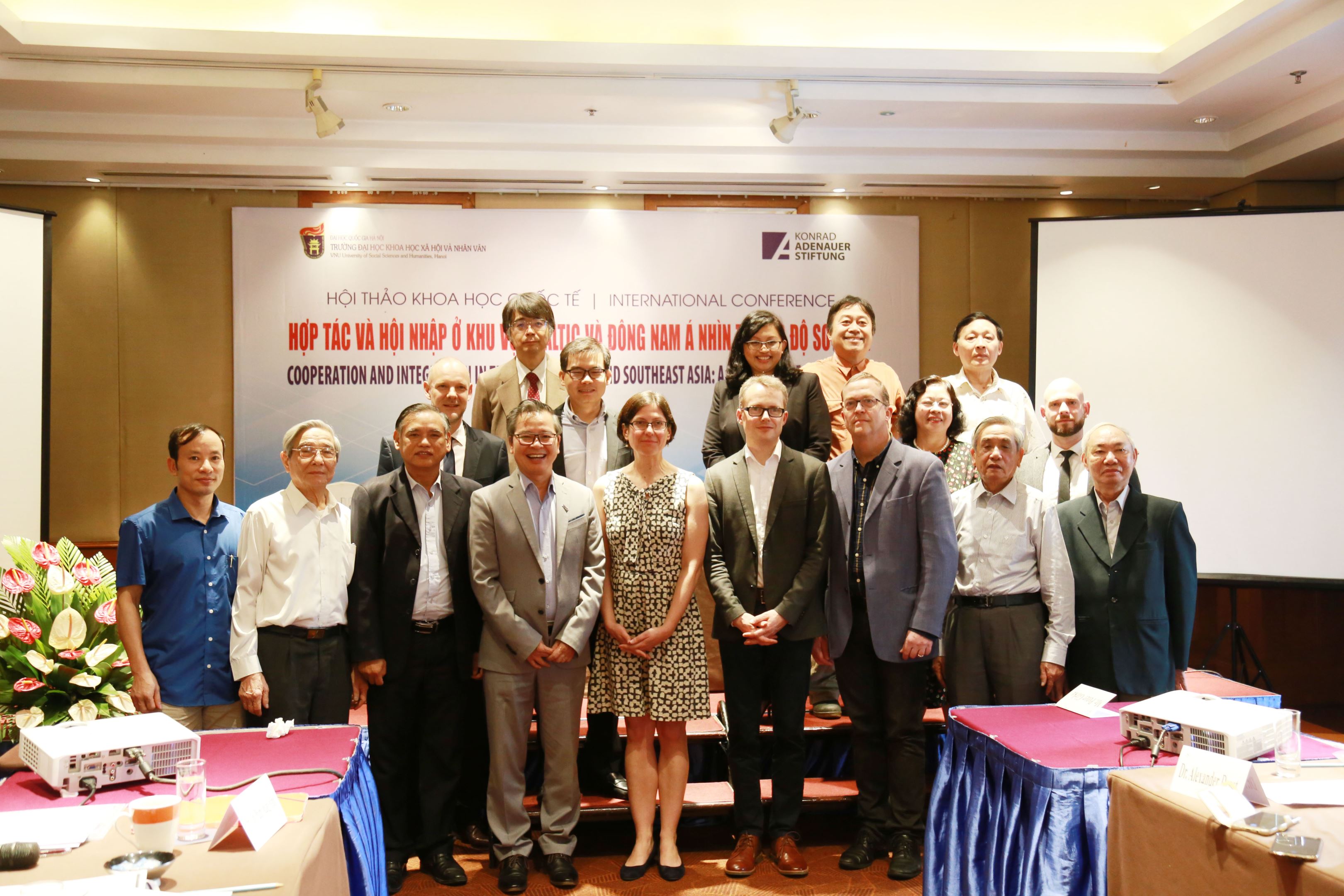
https://baoquocte.vn/asean-co-can-mot-co-che-an-ninh-nhu-kieu-nato-92190.html
Author:Thanh Ha
Newer news
Older news